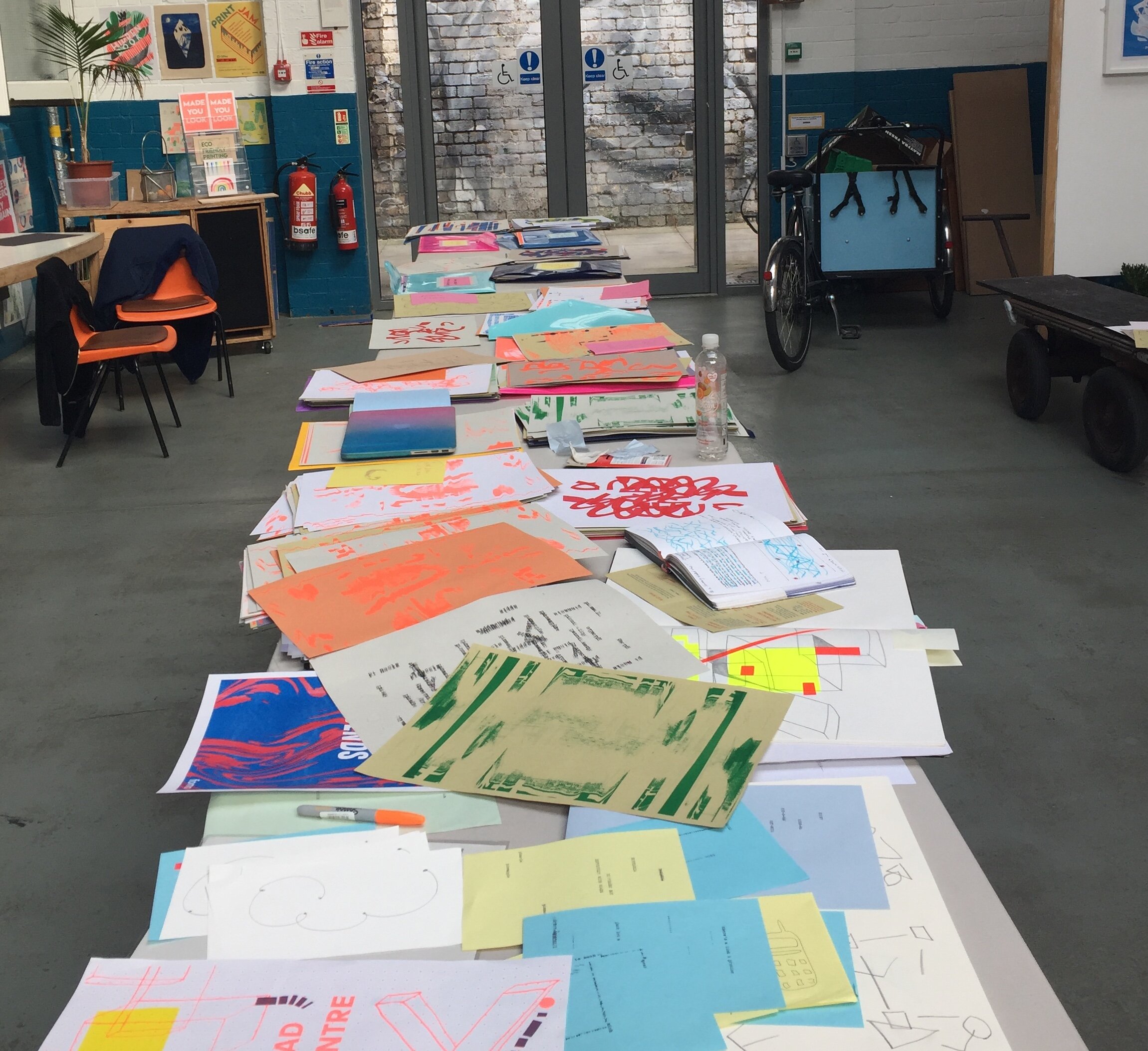LUCY GRAINGE
Lucy Grainge is a visual artist and graphic designer from Manchester, U.K currently based in Barcelona. Her work is often community based and research led, visually characterised by a strong use of colour, shape and pattern. Lucy is also a workshop facilitator, delivering a variety of creative subject matter, including Creative Dyslexia workshops. She is co-founder of Psyche publication, a mental health and socio-politics risograph magazine.
insta: @_lucygr
twit: @lucygrainge
Here’s how Lucy answered our signature questions.
How would you describe your relationship to dyslexia in a sentence, word, image or even a dance move?
Finding order in the chaos.
How does Dyslexia influence your work and/or personal life?
I create a lot of art work about Dyslexia, informed by research and first hand experiences which has resulted in books, exhibitions and workshops. Through these, I aim to open conversations and learn from one another by telling stories and sharing experiences of being dyslexic. I lead creative workshops and teach in different settings, including with many people who are dyslexic or are neurodiverse. I put my research into practice and try to create a heightened multi-sensory, active, creative learning environment. I rarely get frustrated or impatient, as I know what it is like to not understand or remember a word the teacher is saying!
Dyslexia has shaped my personality. I have to be able to laugh at myself when I can’t pronounce a word correctly, take things lightly when they go wrong and be patient when I get lost (and leave an hour earlier). Having to work much harder than my peers when at school I think has created a strong work ethic in me, something I see in many of the dyslexics I know. This can sometimes be detrimental as it can come from a place of feeling inadequate and lead to burn out.
I’m good at ‘big picture’ thinking and seeing how things are connected which is great for problem solving and working in a creative environment. I can easily visualise an idea before doing it and manipulate the variations quickly in my mind, weighing the pro's and con's. I feel most passionate when I can help others understand their dyslexia, and talking about all the nuances which come along with being neurodiverse.
Is there an item that best represents, aids or embraces your dyslexia? If so, can you explain it and share an image of it?
Highlighters & to do lists.
If I don’t write it down I will forget it. Highlighters help me read and remember the tasks, and makes me feel more excited about them!
What advice would you give to your future self?
I’d say keep talking and learning about dyslexia and remember we all learn and think differently - and we need all types of minds.


